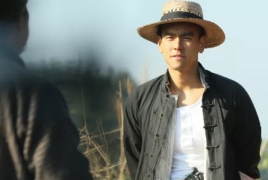
Bille August’s Chinese-made “The Chinese Widow” has been set at the opening night movie of the Shanghai International Film Festival. It replaces the previously announced “Our Time Will Come,” by Hong Kong auteur Ann Hui, Variety said.
No explanation for the change was offered by the festival, or Bona Film Group, producer of “Our Time,” or its international sales agent, Hong Kong-based Distribution Workshop. The film is a wartime drama focusing on the a woman school teacher and other youths who led the resistance movement during Japan’s WWII occupation of Hong Kong. It stars Taiwan’s Eddie Peng and Wallace Huo and China’s Zhou Xun as the female lead.
Hui has been reported as conceiving the film as a tribute to the 20th anniversary of the handover of Hong Kong from British colonial rule to China. It will open in China on the anniversary, July 1 and in Hong Kong a few days later.
Its selection as opening film had been announced at a Shanghai Festival event held during last month’s Cannes Film Festival. Chinese-language reports have since been scrubbed from mainland websites and replaced with links to other news stories. Some English-language reports and those from overseas websites still remain intact.
August’s “Chinese Widow” is a romantic wartime drama about an American airman (played by Emile Hirsch) who crash lands in China while on a bombing run to Japan. He is rescued by and falls in love with a local woman, played by Chinese star Crystal Liu (aka Liu Yifei.) Roc Pictures is among the film’s Chinese producers. It is not currently clear whether the film has been classified as a co-production under the Danish-Chinese co-production treaty signed last month.
Both films will remain in competition for Shanghai’s Golden Goblet award. Other competition titles include one other Chinese title, “The Conformist,” by Cai Shangjun, and the American-made “Brigsby Bear,” directed by Dave McCary.
The overspill from China and South Korea’s ongoing political dispute over a missile defense system continues to affect cultural relations between the two countries. While Cannes found room for five Korean films, the Shanghai festival, like the Beijing International Film Festival before it, chose not to select any.

